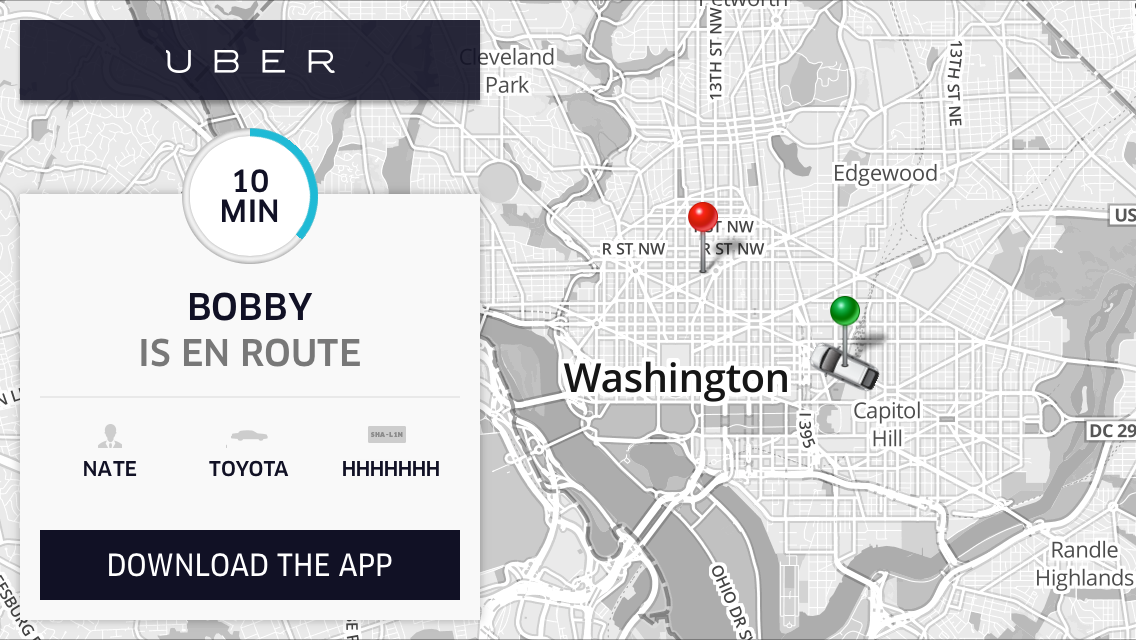Tim Dodd reports on Transport for London's shock decision last month not to renew Uber's licence in the city.
Aside from wrenching the hearts of avid night-revellers, the recent revocation of Uber’s private hire licence by Transport for London (TfL) has raised serious questions over its widespread safety for the student population. The move by TfL was Uber’s coup de grâce in what has been a long and ignominious series of events, which has seen more disgruntled faces exiting Uber than is seen at a cancelled 9am lecture, and more executive-position changeovers than is seen at a primary school relay race.
TfL's reasoning to the market heavyweight concerned their approach to carrying out background checks on drivers, and the inadequate reporting of serious criminal offences to the police. Clearly this constitutes a public danger. When you step into an Uber vehicle, you albeit briefly, enter into a consumer contract. Students need to be confident that the company they are with is safe, employs medically fit drivers, and is ultimately liable to deal with any misconduct from drivers. Complain all you want, but with the recent cascade of terror attacks in London these background checks are of paramount importance and it would be morally repugnant of TfL not to do something about it.
"Friday’s filing is a short notification of Uber’s intention to appeal rather than the detailed grounds." https://t.co/nfmvi07wlE
— Charles Holland (@charlescholland) 13 October 2017
Due to such media sensationalism, you’d be forgiven for believing that Uber does not carry out proper background checks on their drivers… however is this actually true? No. Fred Jones, Uber head of cities for the UK & Ireland, reports that Uber drivers have to pass the same safety checks as black cab and mini cab drivers in London. Until recently, these enhanced DBS checks were done for Uber by Onfido, a third party approved by the Home Office. Earlier this year, in an unexplained yet subtle policy change, TfL amended its policy on DBS checks to only accept checks done by its own contractor GBGroup, and not third parties such as Onfido.
Just two accusations of sexual assault by Uber drivers have been investigated by Avon and Somerset police since 2015
So perhaps Uber aren’t all that bad after all… Not so fast, there really is a dark side to Uber that warrants public attention. There is a serious problem with how they treat both their workers and their passengers, and with their ability to address such problems. In June this year, 20 employees were fired after the law firm Perkins Coie investigated 215 complaints made to Uber about sexual harassment, bullying, and retaliation for reporting problems. In London, in the last year alone there has been one passenger accusation of rape/sexual assault by an Uber driver every 11 days. Is there really any wonder why TfL intervened? It is Uber’s lack of action, once made aware of such issues, which is equally as worrying.
Recently, Inspector Neil Billany, head of the Metropolitan police's taxi and private hire unit, wrote a letter to TfL outlining how Uber failed to report the sexual assault of a female to the police earlier this year. According to Billany, Uber did "nothing more” than speak with the driver who denied the offence. The same driver then assaulted a different female passenger four months later, which he argued would have been prevented if Uber had notified the police originally. But are you any more likely to be assaulted by an Uber driver, than say, a London cabby? Unfortunately, it seems so.
Uber apologises after London ban and admits 'we got things wrong' https://t.co/W3LvtNZglB pic.twitter.com/CziNLKtSdj
— Ray Murphy (@HeadHunterConst) 10 October 2017
Of the taxis and private hire drivers who were charged for sexual assault in 2014 and 2015, 47 worked as private hire drivers (which includes Uber) and only one was a black cab driver. This is highly significant and it is worth considering that sexual assaults are underreported and so the actual number is likely to be higher. Is this as much of a problem elsewhere? Outside of London, Uber drivers have been accused of more than a dozen sex attacks, including at least two rapes. What about in Bristol? Just two accusations of sexual assault by Uber drivers have been investigated by Avon and Somerset police since 2015..
Time to cut Uber some slack. There are several reasons why, at least in theory, Uber is far safer than using a Taxi. Firstly, for each driver you are given a name, their registration number and a rating from previous users. As you can see the planned route on the app you know the driver is taking the shortest route, which is particularly handy in foreign countries where local taxi drivers could attempt to lure you into a tourist trap and take you on an unnecessarily long route to get more money from you. Being emailed your receipt immediately after your ride means you cannot be ripped off by a cabby when you are drunk, for example overpaying in cash, as you have evidence of what you paid. In addition, the fact that you book a cab through the app and pay for it through your phone means you never need to jump out at cashpoints. Not only is this convenient but it’s also safer.
For example, in Brazil almost all ATMs are inside buildings, and even those close after 6pm due to the level of cashpoint crime. If you think as a tourist I’d have been comfortable jumping out of my Uber in the dark to get cash out in Rio de Janeiro, then think again! In general Uber is cheaper, (split between enough friends it can even undercut public transport), obviously much more convenient and efficient, and is also better for the environment due to its ‘pooling’ system whereby you lift-share with other commuters on route (a lovely way of meeting the locals in a foreign place may I add).
40,000 people will now be out of work, and 3.5 million regular users stranded
Rather than a consequence, is the stalling of Uber in London actually a cause of danger? 40,000 people will now be out of work, and 3.5 million regular users stranded, the impact on whom may be bigger than you think. Is this compromising the safety of women in the capital? Of comments found circulating the internet in reaction, one stated Uber is the “Safest way for a woman to get away from an unsafe environment … I would not want to go back to having to walk in the street on my own late at night in London, trying to hail a black cab or find a taxi office”. This was echoed by another “As a woman who lives alone and goes outside after dark, I'm really annoyed. Uber is so useful (and cheap) when in uncomfy situations.”
From masturbating Uber drivers, to a ride where the driver put on a radio station which was being broadcast live from the mobile phone of someone in the backseat, I have heard it all in my Uber-interesting conversations. All students I have spoken to feel safe in an Uber, and whilst the TfL Uber ban will not be welcomed by all, I find it hard to believe it will cause the demise of the London transport system, which boasts one of the best Tubes in the world and has fantastic transport links 24/7. The question of whether Uber is truly ‘safe’ is one which readers should decide upon for themselves (what exactly is ‘safe’? Are you really ‘safe’ anywhere anymore?) …anyway I must dash, I have an Uber waiting outside.
Featured image: flickr / Mapbox
Are you for or against the London Uber ban? Let us know!









